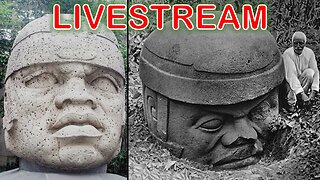Premium Only Content

Trump Tweet: Election Fraud 2020 Man In America
n 1774 and the spring of 1775 Paul Revere was employed by the Boston Committee of Correspondence and the Massachusetts Committee of Safety as an express rider to carry news, messages, and copies of important documents as far away as New York and Philadelphia.
On the evening of April 18, 1775, Paul Revere was summoned by Dr. Joseph Warren of Boston and given the task of riding to Lexington, Massachusetts, with the news that regular troops were about to march into the countryside northwest of Boston. According to Warren, these troops planned to arrest Samuel Adams and John Hancock, who were staying at a house in Lexington, and probably continue on to the town of Concord, to capture or destroy military stores — gunpowder, ammunition, and several cannon — that had been stockpiled there (in fact, the British troops had no orders to arrest anyone — Dr. Warren’s intelligence on this point was faulty). Revere contacted an unidentified friend (probably Robert Newman, the sexton of Christ Church in Boston’s North End) and instructed him to show two lanterns in the tower of Christ Church (now called the Old North Church) as a signal in case Revere was unable to leave town. The two lanterns meant that the British troops planned to row “by sea” across the Charles River to Cambridge, rather than march “by land” out Boston Neck.
Revere then stopped by his own house to pick up his boots and overcoat, and proceeded the short distance to Boston’s North End waterfront where two friends waited to row him across the river to Charlestown. Slipping past a British warship in the darkness, Revere landed safely. After informing Colonel Conant and other local Sons of Liberty about recent events in Boston and verifying that they had seen his signals in the North Church tower, Revere borrowed a horse from John Larkin, a Charlestown merchant and a patriot sympathizer. While the horse was being made ready, a member of the Committee of Safety named Richard Devens warned Revere that there were a number of British officers in the area who might try to intercept him. About eleven o’clock Revere set off. After narrowly avoiding capture just outside of Charlestown, Revere changed his planned route and rode through Medford, where he alarmed Isaac Hall, the captain of the local militia. He then alarmed almost all the houses from Medford, through Menotomy (today’s Arlington) — carefully avoiding the Royall Mansion whose property he rode through (Isaac Royall was a well-known Loyalist) — and arrived in Lexington sometime after midnight.
-
 6:08:13
6:08:13
MissesMaam
13 hours agoCelebrating New Years 2025 💚✨
62.4K16 -
 3:22:32
3:22:32
PandaSub2000
3 days agoPlatformer ExtravaPandza | ULTRA BEST AT GAMES (Original Live Version)
78.7K32 -
 5:43:19
5:43:19
Bitcoin Magazine
16 hours agoLIVE: MICHAEL SAYLOR'S $100K NYE BITCOIN PARTY
134K14 -
 5:06:15
5:06:15
AirCondaTv Gaming
22 hours ago $39.73 earnedOnce Human - New Year. New Meta. Happy New Year!
156K15 -
 1:00:37
1:00:37
Bright Insight
10 days agoOlmec Heads are Evidence of Lost Ancient Advanced Civilization
149K230 -
 13:43
13:43
Cooking with Gruel
2 days agoCreamy Saffron Risotto
132K24 -
 18:38
18:38
DeVory Darkins
1 day ago $46.55 earnedTrump Makes HUGE Announcement that may spark GOP Battle
165K90 -
 2:13:05
2:13:05
The Nerd Realm
21 hours ago $13.61 earnedNew Years Eve! Fortnite Hunters w/ YOU! Creator Code: NERDREALM
114K6 -
 11:04:44
11:04:44
FusedAegisTV
1 day agoNYE Eve! - 2025 Incoming 🎉 - 12hr Variety Stream!
164K7 -
 1:18:52
1:18:52
Awaken With JP
1 day agoSomehow The World DIDN’T End This Year! - LIES Ep 72
195K169